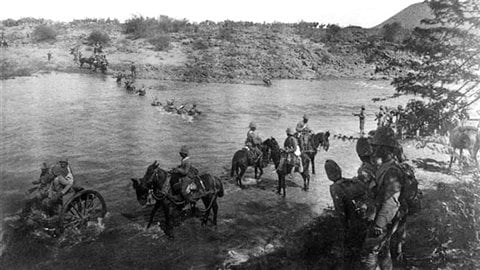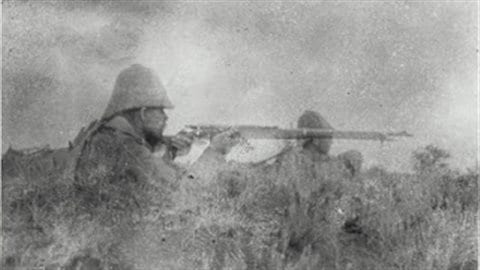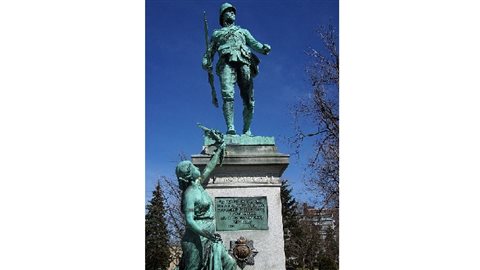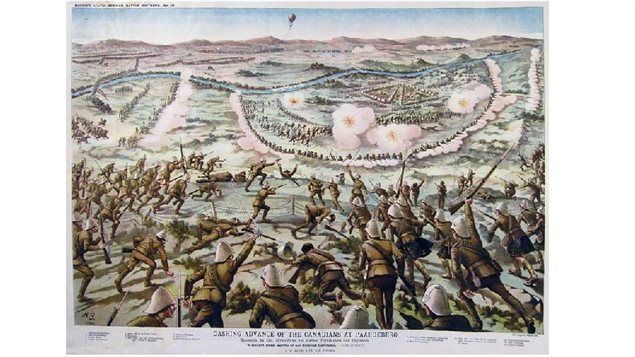February 27, 1900.
In the 1800’s European nations were eagerly building colonial empires in Africa. In the 1880’s, British expansion came into conflict with German expansion, and the long-time Dutch farmers “Boers”. Both the Boers and British also came into conflict with natives such as the Zulus.
A first conflict between Boers and the British occurred in 1881 in which the British were essentially defeated and signed a peace treaty.
In 1899, British colonial interests and a gold rush once again came up against the Boers whose roots in the region went back another 200 years or so, and who bitterly resented British rule and incursion into “their” land. A second war between the two erupted that year.

The Boers had initial success with their excellent marksmanship, use of camouflage and highly mobile guerilla-war tactics against the British still clinging to Napoleonic-era strategies.
Indeed the Boer word “commando” has been adopted into the lexicon of every army since, along with “laager” or a gathering of vehicles and personnel in a temporary defensive position.
After heavy initial losses. Britain called for volunteers from its Empire, and Canadians were among those who responded.

A new volunteer battalion was formed called the 2nd (Special Service) Battallion, Royal Canadian Regiment of Infantry (RCRI). The 1,000 strong force arrived in Cape Town in late 1899, and although lacking in training, were sent north towards the Modder River. There they adopted more appropriate tactics than the Napoleanic-era of standing in blocks and firing in volleys, opting instead for skirmish tactics, moving forward in short rushes and firing from prone position.
On 18 February 1900, the British forces caught up with a major Boer force near Paardeburg Drift (also spelled Paardeberg) where the Boers dug in. An initial British attack across open ground resulted in many casualties including among the Canadians.
After a ten day stalemate, with British firing shells and bullets into the laager, the Canadians were sent in at 2am on 27 February in a surprise attack. Only a few dozen metres from the Boer trenches, a trip wire warned the defenders and the Canadians dug in with heavy exchange of fire. The Boers seeing their position was untenable, withdrew as Canadians charged. The force of over 4,000 Boer fighters surrendered later that morning, a tenth of the entire Boer force.
The Canadian action was hailed as leading to the first major victory for the British in the war, and was a huge boost in morale for the British.

The Canadians later returned home to a fantastic welcome although about 270 Canadians had died in the war. The victory however added to Canadians sense of their own nationalism and pride.
The war did not end then but dragged until 1902 long after the Canadians returned home, becoming more vicious on both sides. Though the British were eventually victorious, yet another word arose from that tragic war which, even at the time and ever since, has been symbolic with great suffering as Boers were herded into “concentration camps”.







For reasons beyond our control, and for an undetermined period of time, our comment section is now closed. However, our social networks remain open to your contributions.